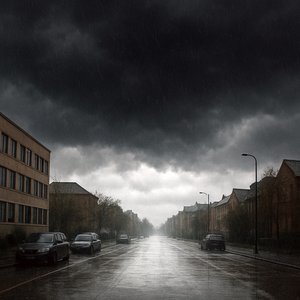| Phrasal verb | Main meaning |
|---|---|
set in [sɛt ɪn] | to begin and seem likely to continue |
Other meanings
- (of weather, season, or situation) to start and stay for a while
- (of feelings, moods, or conditions) to develop and become noticeable
- (of decay, rust, or rot) to start affecting something
Example Sentences Using the Phrasal Verb "set in"
- When the rain set in, everyone rushed indoors.
- Winter has set in, and the days are getting shorter.
- Panic set in when the lights went out.
- If the infection sets in, you should see a doctor immediately.
- Once bad habits set in, they are hard to break.
Features of Using "set in"
Set in is always intransitive and inseparable. It is most often used about unpleasant things — bad weather, negative emotions, or unwanted situations — that begin and continue for some time. It gives the sense of something settling in or becoming established. It’s rarely used in the progressive form (is setting in is possible but uncommon).
Other phrasal verbs with the verb set
set up
to establish or arrange something
set off
to start a journey
set out
to begin a journey or start an activity with a purpose
set apart
to make something or someone different, distinctive, or special
set aside
to save or reserve something for a special purpose
set back
to delay the progress of something
set upon
attack someone suddenly and aggressively
set against
compare or contrast something with something else
🔗 Learn more about the irregular verb set, including its forms and usage.









